The Workers' Party's 60th anniversary
The Workers’ Party’s 60th anniversary: What lies ahead?
The Workers' Party is now the biggest opposition party in Singapore. Insight looks at how it got there and what the future holds.

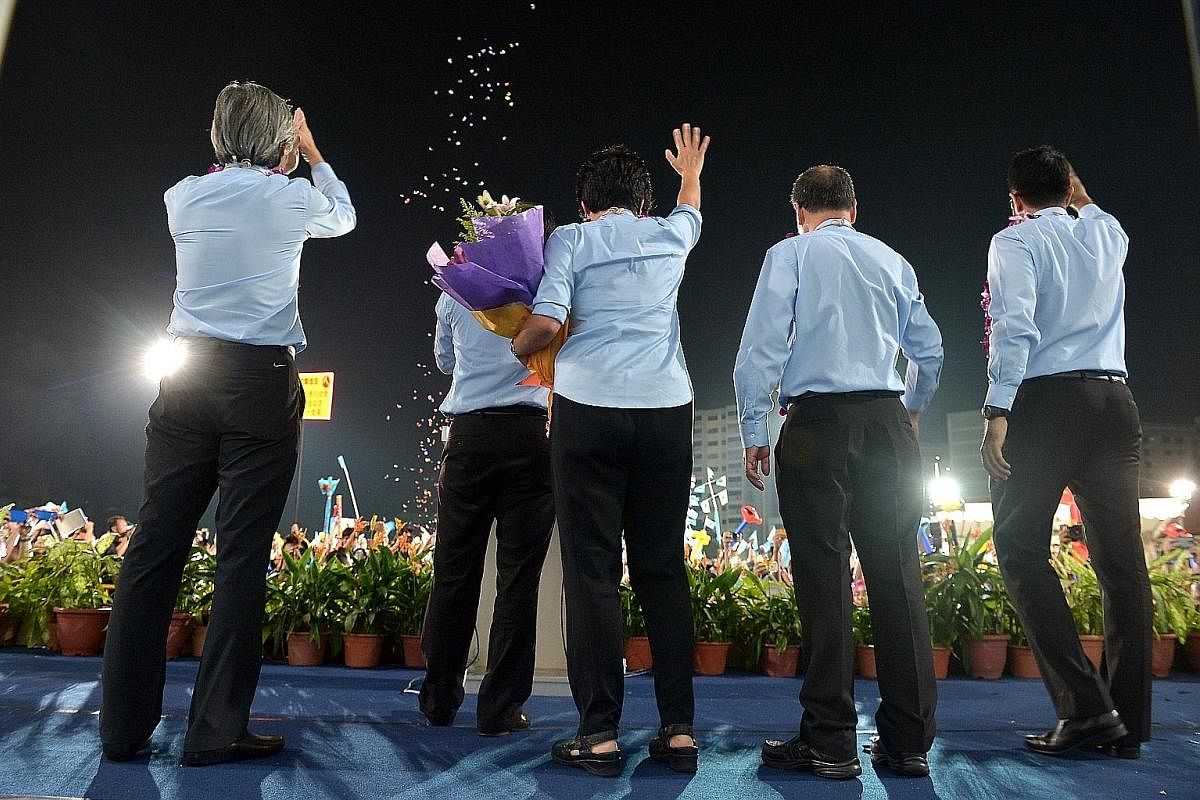
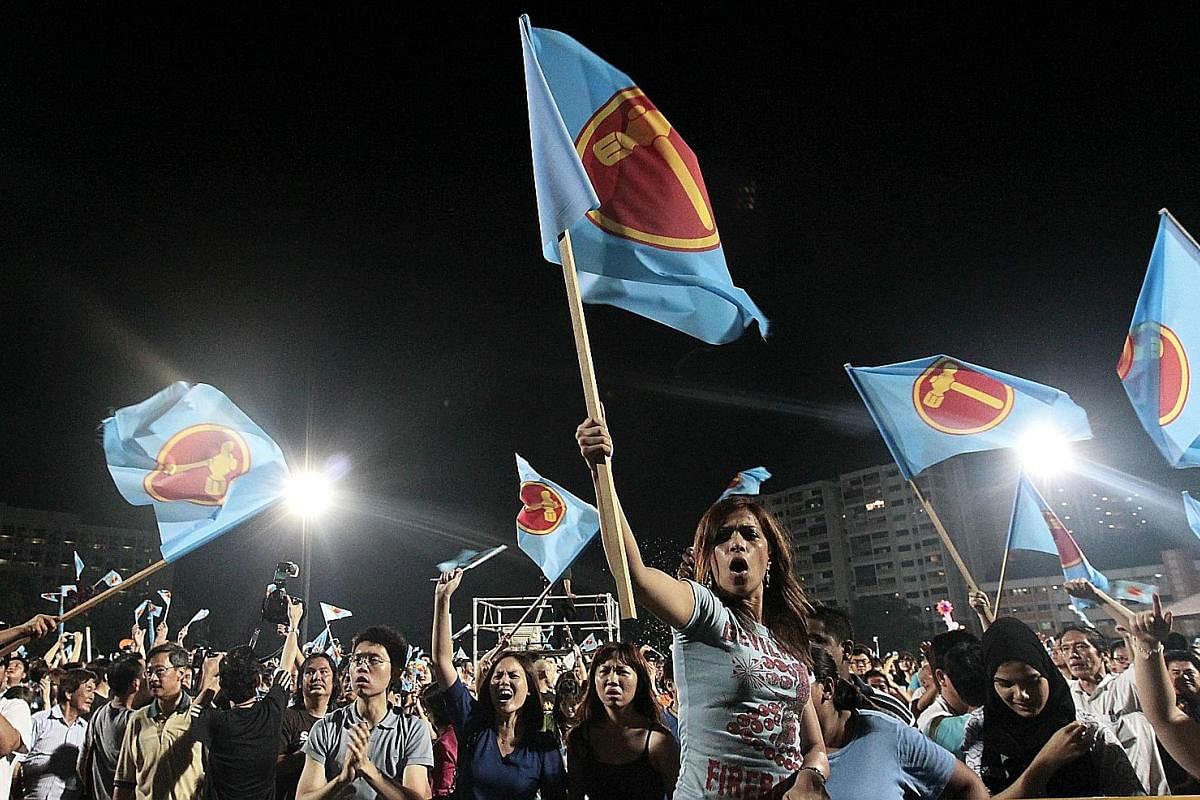
Just outside the Yee Joo provision shop in Hougang Avenue 5 is a short flight of narrow stairs. The concrete steps lead from the footpath along the road to the provision shop. It's the kind of nondescript neighbourhood amenity that Singaporeans take for granted.
But not for provision shop owner Mr Jiang. For him, those four steps cemented his firm support for the Workers' Party (WP) and its secretary-general Low Thia Khiang.
Recounting how the stairs were built, the 62-year-old, who declined to give his full name, says: "There used to be a slope here, and it would get slippery when it rained. I was concerned that elderly people would fall, so I raised it with Mr Low."
That was about 20 years ago, he says, noting that Mr Low arranged for the stairs to be built and the bill to be paid.
The WP is "very direct", says Mr Jiang. "If they can help you, they will help you."
Such is the sentiment on the ground in Hougang, which has grown into a sturdy power base and a backyard of the WP since Mr Low became its MP in 1991.
On Friday, the party will turn 60. While support remains strong in Hougang, the party's future looks less certain, as it continues to grapple with legal troubles related to town council management. Insight examines the WP's journey and what lies ahead.
THE HOUGANG SPIRIT
The year 1991 marked a milestone in Singapore politics. The opposition made a then unprecedented breakthrough and won four seats in Parliament.
Three MPs were from the Singapore Democratic Party, and the fourth was a 35-year-old Teochew-speaking businessman from the WP - Mr Low.

Over the years, Mr Low, now 61, worked quietly on the ground, shunning the media, and building up a strong following among residents directly through house and market visits. Mr Png Eng Huat, the WP's organising secretary, calls this solid support the "Hougang spirit".
The WP chief built up a grassroots network in Hougang, with an accompanying welfare arm and education trust that awards bursaries.
He also made a point to attend all funeral wakes in his ward, to pay his respects and to find out if the family had problems he could help with.
Going the extra mile has paid off. In an interview with Insight, Mr Png says the loyalty Mr Low engendered was such that residents would say they understood if he had no money to do repairs. "(They would say) 'Never mind, it's okay.' People have this spirit that we are in this together," he says.
At Meet-the-People Sessions, residents would boil tonic drinks for him or even buy him dinner, says Mr Png, 56. "In Hougang, it's a bit special. The people there make you feel welcome. You feel like you don't just serve them, they also serve you," he says.
Mr Png was elected MP for Hougang in 2012 after its former MP Yaw Shin Leong was sacked by the WP for not coming clean on alleged extramarital affairs.
The emphasis on grassroots work goes to the core of the WP, observers say. The party's icon, the hammer, is a tool of the working man.
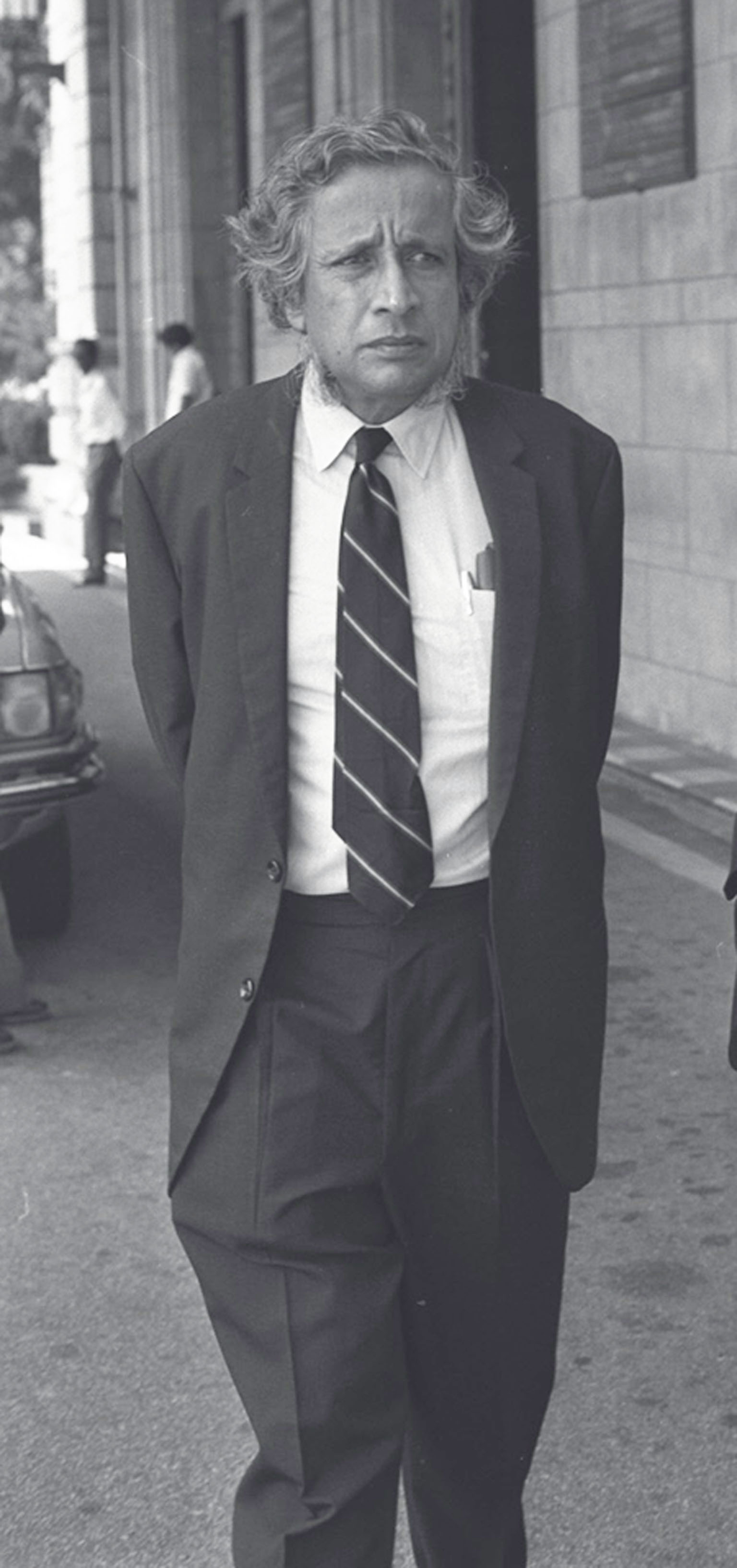
The party's founder, the late former chief minister David Marshall, would march in the street with workers, says Non-Constituency MP Daniel Goh, 44, at the same interview with Insight. Says Associate Professor Goh, a National University of Singapore sociologist: "It set the tone from the very beginning that if you want to be a WP member, you have to walk the ground - you have to be with the people."
PARLIAMENTARY PRESENCE
Mr Marshall set up the WP in 1957 as a political vehicle for workers, and led it to its first election victory at the national level in 1961 in Anson. In 1963, he resigned after disagreements with other party leaders, leaving it in limbo until lawyer J.B. Jeyaretnam joined in 1971.
Mr Jeyaretnam took a confrontational stance against the People's Action Party, and his fiery rhetoric earned him the nickname "the Tiger". His attacks drew big rally crowds when he contested the Anson by-election in 1981. WP rallies are still the biggest crowd-pullers at general elections today. He won Anson, becoming the first opposition candidate elected post-independence.
Another decade later, in 1991, Mr Low would go on to win his Hougang seat.
In the WP's 60th anniversary book Walking With Singapore, party stalwart Lim Ee Ping says the WP might not be where it is if this had not happened.
"At that time, if it was Jeyaretnam who fought in Hougang, he would not have been able to win. No matter what you say, Jeyaretnam was not Chinese, that area was a little racialised," he says in a Mandarin interview in the book. Mr Low did not respond to requests for comment when asked about this.
Priced at $30, the book will be available in bookstores after Friday.
In 2001, Mr Low assumed the mantle of secretary-general of the WP after Mr Jeyaretnam left in unhappy circumstances.

After hobbling along for 20 years with only one elected seat in Parliament, the WP's fortunes picked up in 2011 when a team led by Mr Low and WP chairman Sylvia Lim captured Aljunied GRC in the general election - showing in the process that the WP had the capability to field a slate of highly qualified candidates.
Political observer Derek da Cunha calls this "the most important electoral development in Singapore in at least one generation".
He notes that while the Anson win of 1981 involved specific constituency-level issues - some residents there had to be relocated due to expansion of the PSA container terminal - the Aljunied win had national significance. "Aljunied GRC in 2011, as it is today, is a diverse constituency that is almost a microcosm of Singapore," he says.
Now the WP has six elected MPs, along with three NCMPs, but this is still tiny compared to the PAP's 83 elected seats.
During the 2015 GE, Mr Low said at least 20 opposition MPs were required to effectively check the Government, given the many government ministries and statutory boards. The WP fielded 28 candidates, just one shy - if all 28 were elected - of denying the PAP a two-thirds super majority, the number of MP votes needed to amend the Constitution.
Both Mr Png and Prof Goh refused to be drawn on whether this was a long-term goal of the party, saying this was something its future leadership would decide.
But in WP's new book, to be launched later this week, Mr Low says: "The next milestone, if there is one, is to see if we can win another GRC. That would be a sign. It's not easy. People think it is (easy) and it's like domino theory, but that is not the case! If the government of the day has done well, people will usually not want to change."
Meanwhile, political observers have pointed out that the PAP Government has moved left-of-centre, launching policies to placate the ground after 2011. These included MediShield Life, the Pioneer Generation Package, and curbing immigration.
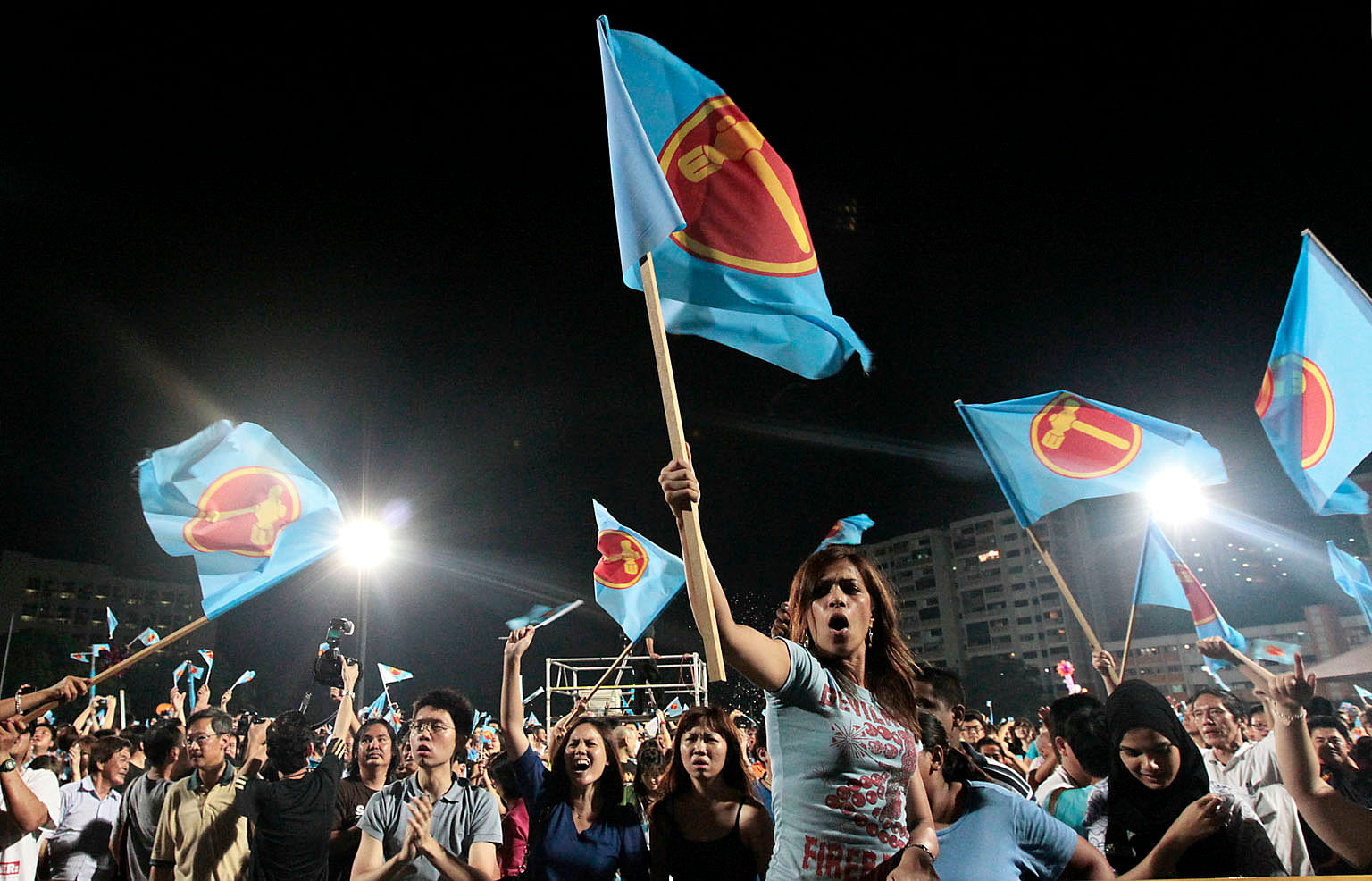
It could be said that the PAP is becoming more like the WP, argues Prof Goh. Asked whether the WP took credit for these policies, he adds: "Ultimately (the WP members) don't see ourselves as the protagonist or antagonist. We are just a vehicle and the voters are the protagonists. They are the ones who send us to Parliament so that we can be their voice, pressure the Government to make certain changes."
But the WP's stance of being a moderate opposition might not work in the long term, as the electorate would eventually expect it to challenge the PAP in a serious way, says Singapore Management University law don Eugene Tan.
"Expectations are high, and if the WP remains content to play second fiddle to the PAP, we can expect voters' support for WP not to increase significantly," he says.
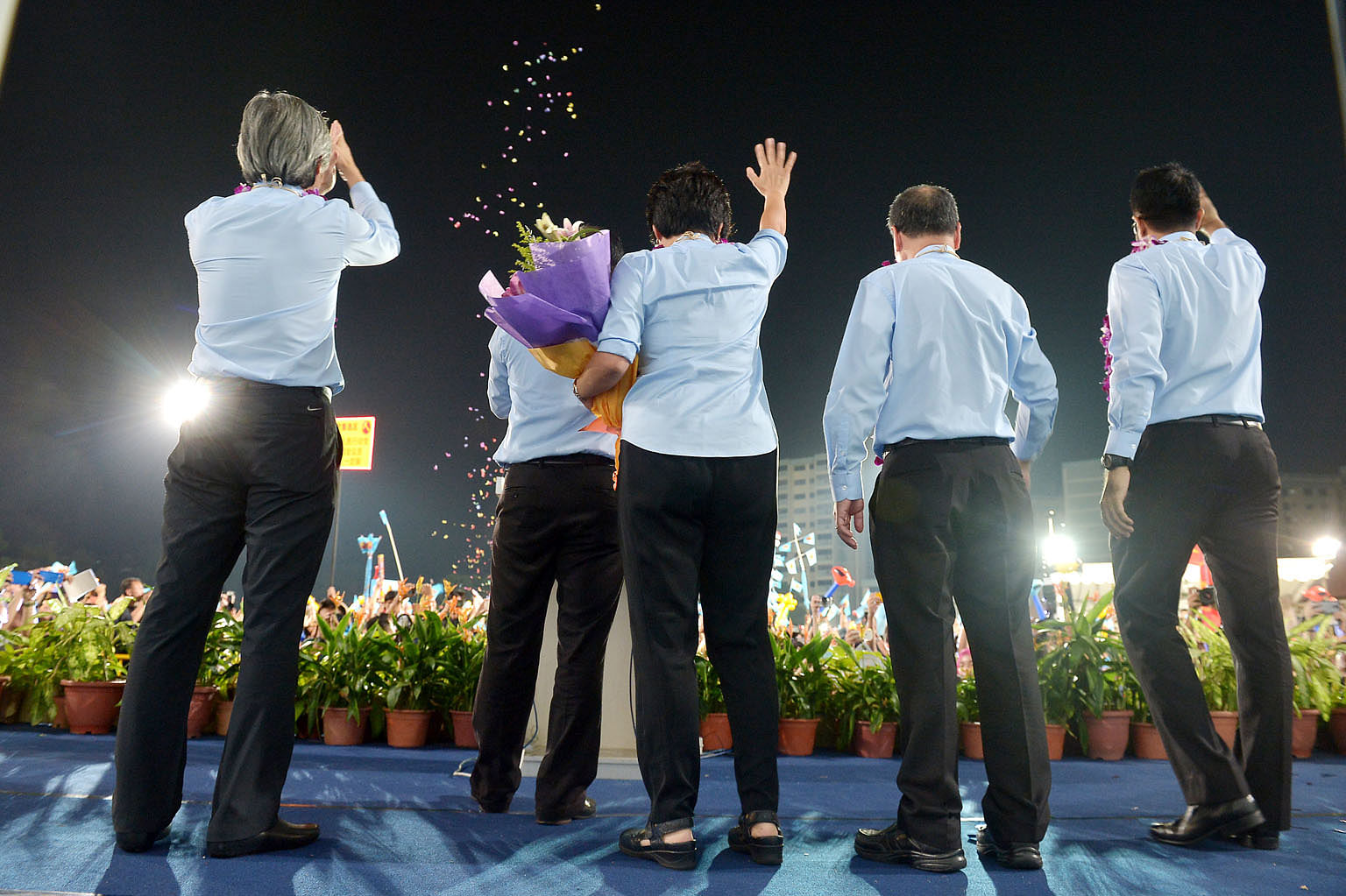
Another criticism is that the party cooperates with other opposition parties less, leading to multi-cornered fights against the PAP.
Mr Low said during the Punggol East by-election in 2013: "If you try to force people of different characters together, you will not get bliss, but may even lead to ugly fights."
Mr Goh Meng Seng, who was a member of the WP from 2001 to 2006, says: "During the period I was there, we actively reached out to other opposition parties. We're not so atas (above that). After 2006, all communications went to zero."
FRESH BLOOD
For now, the party is focused on renewal. Last month, it moved into its new permanent headquarters in Geylang Road. Last year, it elected onto its Central Executive Council (CEC) a slate of young members Mr Low had previously earmarked as future leaders.
It was at that party conference that WP MP Chen Show Mao made an unsuccessful bid to run for the top post against Mr Low - an event the WP has portrayed as part of a natural democratic process in a mature political party.
So focused is the party on renewal that it declined all media interviews to speak to its senior leaders - namely Mr Low and Ms Lim - ahead of its 60th anniversary. Instead, it has chosen to let newer members front interviews.
"They will have to assure voters that there is sufficient depth and breadth beyond Mr Low," notes Associate Professor Tan, adding that Mr Low remains the "prominent face" of WP.
Prof Goh says renewal is the "immediate aim" of the party, and it is working hard at deepening party institutions and building up its grassroots. Although he declined to reveal volunteer numbers, he says the party recently set up a WP Grassroots Committee and new systems to orientate and manage volunteers.
Numbers are steadily increasing, but he adds they are still "very small compared to the PAP".
Under Mr Low, the party has also been conservative in terms of electoral expansion, choosing to focus on the eastern parts of Singapore.
Mr Png says: "We can contest many seats but we have to make sure that we are offering the people a choice, a slate of candidates who can serve them well."
He adds that the party's ability to attract good people has not been hampered by legal troubles affecting the leadership. In July, Aljunied-Hougang Town Council, under the direction of an independent panel, took legal action against several town councillors, including Mr Low, Ms Lim and Mr Pritam Singh, to recover alleged improper payments.
Prof Goh says the case is not at the forefront of the trio's consciousness and that it will not be a "knockout blow" to WP even if they are made bankrupt and disqualified from elections.
But Mr Singh, who is the party's assistant secretary-general, said in a recent interview with Lianheaobao that the lawsuit has cast a "certain complexity" on party renewal.
It "will have to rise above the lawsuit to put across a persuasive message to the public", he said.
Dr da Cunha says WP's legal trouble will weigh on the party. But "if voters perceive unfairness against the WP, then that legal action could also prove counterproductive".
Mr Png says he hopes Singaporeans ultimately will assess whether the WP has contributed to Singapore. "Have we made things better in any way? Is our party just making noise, or helping to improve the political climate and landscape?"

The Past: Veteran compares WP under JBJ and Low
The 1997 General Election was a disappointing one for Workers' Party (WP) candidate Ng Teck Siong. His team in West Coast GRC lost, taking just 29.9 per cent of votes.
"A lot of residents approached me during the campaign to say our chances are not good. It was an uphill task for the opposition," says the retired businessman, now 77.
WP won one seat in that election - Mr Low Thia Khiang's in Hougang.
But what gave Mr Ng heart was the fighting spirit shown by the WP and its then secretary-general J.B. Jeyaretnam, known as JBJ. After the results came out, Mr Jeyaretnam gave him words of encouragement.
"He told me to keep on trying. He was a man who never gave up," he says, noting how the WP leader persevered despite suffering much personal financial loss during his journey as an opposition politician.
Mr Jeyaretnam was made a bankrupt in 2001, after losing defamation lawsuits. As a result, he lost his Non-Constituency MP seat. That year, he decided to leave the WP - a party he had led for 30 years - after expressing disappointment that party leaders Low Thia Khiang and Tan Bin Seng did not help him with debt payments arising from his defamation suits.
Mr Ng, a loyal ally of Mr Jeyaretnam, left the WP with him. They later set up the Reform Party together.
Comparing the WP under Mr Jeyaretnam to that under Mr Low, who took over the party reins in 2001, Mr Ng says Mr Jeyaretnam opposed the Government much more vigorously. "When he believes something is right, he will fight for it in a strong and aggressive way."
By contrast, Mr Low's WP, he feels, has chosen a less confrontational approach and, as a result, has missed opportunities to speak up for the people on issues such as the cost of living and the elected presidency.
Still, he acknowledges the WP's contribution of maintaining an opposition presence in Parliament, and continues to root for them.
He says: "Morally and spiritually, I support them. I hope they will form a government one day. Sylvia Lim will make a good prime minister."
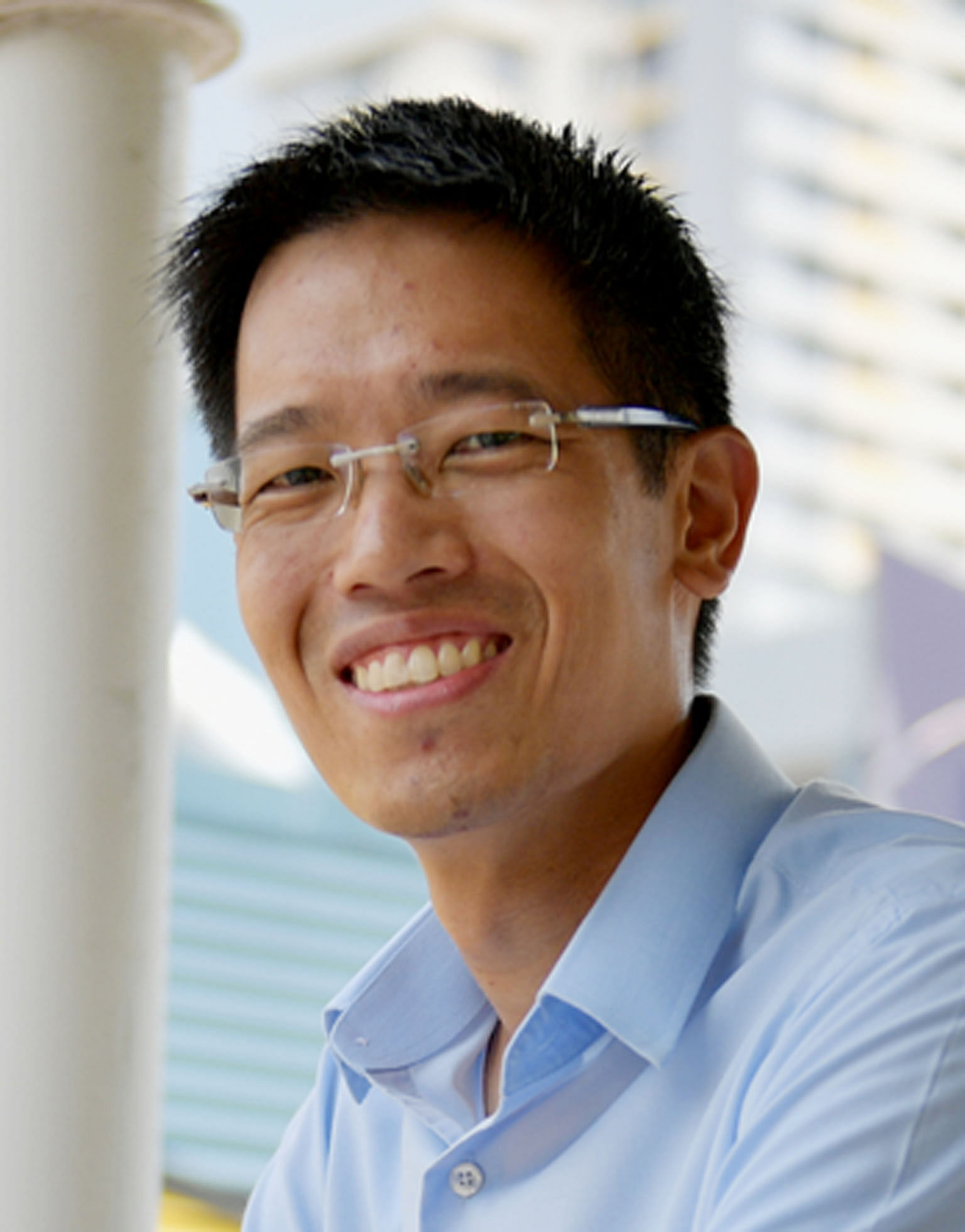
The Present: 'Now, doors don't slam in my face'
Even after eight years in politics, Mr Gerald Giam, 40, still gets butterflies in his stomach before he knocks on doors during house visits for the Workers' Party (WP).
Talking to strangers might come naturally to some people, but not to Mr Giam, who admits he is an introvert. "It's not easy for me to go up to strangers to try and convince them of my point of view, but once things get warmed up I really enjoy interacting with people, especially those who want to see Singapore move forward," says Mr Giam.
The IT consultant, who does weekly house visits in Fengshan SMC with a team of volunteers, says nowadays he seldom gets doors slammed in his face. "People are much more open now. People are more willing to open their doors and speak to us without looking over their shoulders - people see us as a relatively permanent feature now, especially in this part of Singapore," says Mr Giam, describing how the reception to the party has changed.
He joined the WP in 2009, and was fielded as a candidate in East Coast GRC for both the 2011 and 2015 elections. As part of the top-performing GRC team that lost in 2011, he then went on to be one of the WP's Non-Constituency MPs.
"(People) are judging us not as young new upstarts, but a party that has been around for some time. Expectations have increased and we need to work harder both on the ground and in Parliament," he says.
The former co-founder of online news site The Online Citizen says he joined the WP partly because he wanted to help build up a credible alternative to the ruling People's Action Party (PAP): "I felt I wanted to get into the ring and effect that change. I knew that change could not come from within the PAP, and a lot of this change would have to be imposed from the outside in terms of a credible alternative party."
The fact that young people now are politically aware and interested has also given him cause for optimism. "I go on house visits, and I meet young people - I'm talking about teenagers and Secondary 1 students - I ask them, 'Have you heard of WP?' Almost all of them will say yes. It's quite different now. When I was in Secondary 1, I don't think I knew what the WP was," he says.
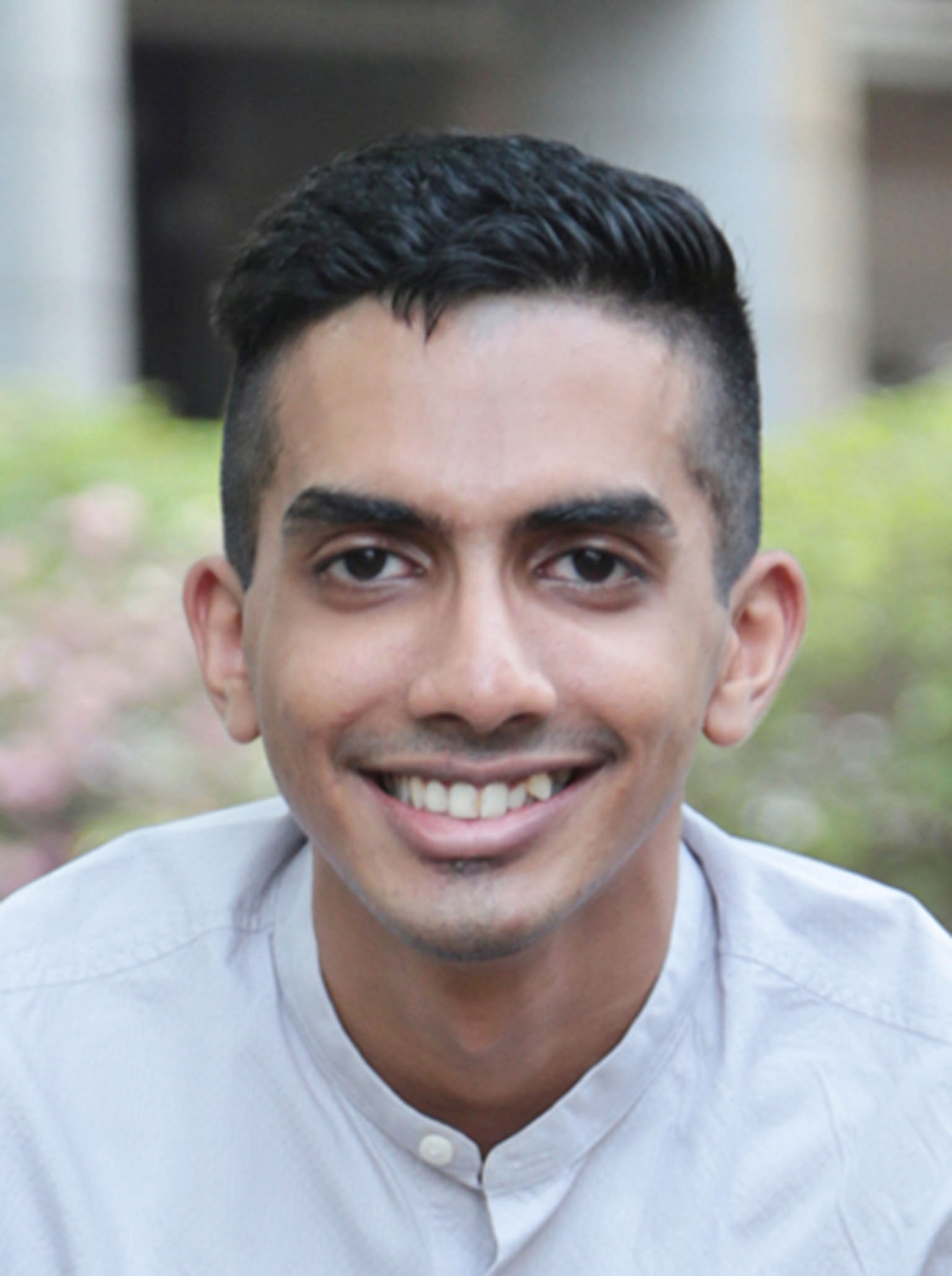
The Future: 'Not enough to be a keyboard warrior'
As a boy in primary school, Mr Yudhishthra Nathan remembers being taken to political rallies of the Workers' Party in the noughties by his father and grandfather.
Growing up, his family would also discuss politics at the dinner table.
Mr Nathan, 22, says he was raised to be politically aware. Even in primary school, he knew that there were only two elected Members of Parliament who were not from the ruling People's Action Party (PAP) - the WP's Mr Low Thia Khiang, and the Singapore People's Party's Mr Chiam See Tong.
Mr Nathan is part of the wave of young Singaporeans who have joined the WP in recent years.
The National University of Singapore environmental studies undergraduate is part of the WP's Punggol East constituency committee. He helps out with house visits, grassroots events and food distribution programmes.
"I tell people my co-curricular activity is helping the Workers' Party," says Mr Nathan, a Punggol East resident himself, with a laugh.
Explaining why he chose to join the WP, Mr Nathan tells Insight that growing up, he felt strongly that there should be more political competition, because "only then can the best ideas come out".
He started volunteering with the WP while doing national service, and would help at Meet-the-People Sessions when he booked out of camp.
Back then, Ms Lee Li Lian had just won the Punggol East seat in a 2013 by-election. Mr Nathan joined the party as a full-fledged member about two years later.
During the 2015 General Election, Mr Nathan, who was then 20 and could not vote, was a WP counting agent in Punggol East.
"It was surreal to see the stacks of ballot papers. The WP and PAP were neck and neck," he says. The WP lost Punggol East eventually, with the PAP's Mr Charles Chong winning 51.8 per cent of the vote.
"I remember travelling to Hougang stadium in Lee Li Lian's car and thanking her for being my MP - it was a very emotional period," he says, adding that he is optimistic the WP will make further progress politically.
"What's important is political participation in between elections. We have to step up and do something. it's not enough to be a keyboard warrior," he says.
Join ST's WhatsApp Channel and get the latest news and must-reads.
A version of this article appeared in the print edition of The Sunday Times on October 29, 2017, with the headline The Workers’ Party’s 60th anniversary: What lies ahead?. Subscribe

